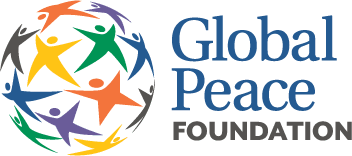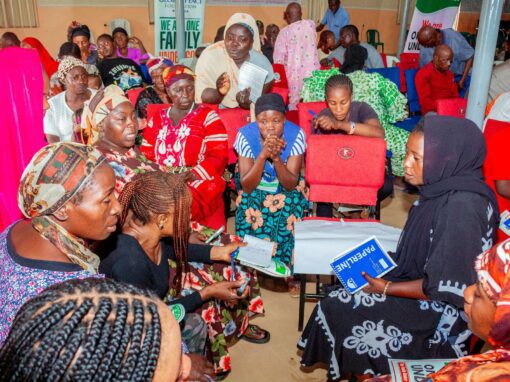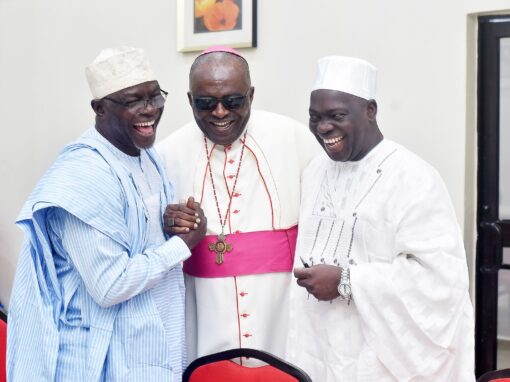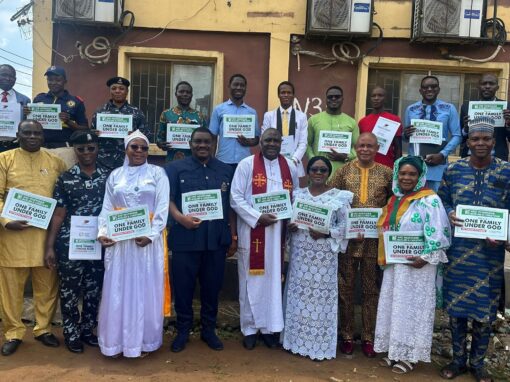“Lasting peace cannot be achieved through politics alone—it must be grounded in spiritual and moral principles that affirm our shared humanity.”
—Dr. Hyun Jin Preston Moon, Founder of the Global Peace Foundation
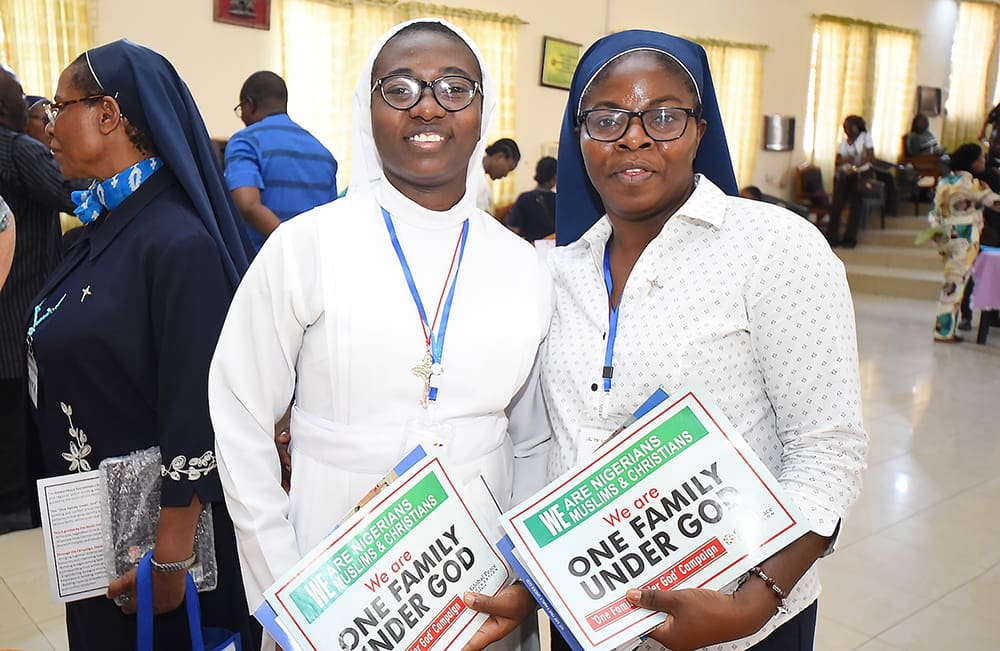
Attendees show support for the One Family under God campaign
As the world observes the International Day of Peace 2025 under the theme “Actions for Peace: Our Ambition for the Global Goals,” it is critical to examine the often-overlooked role of faith leaders in building resilient, inclusive societies. Faith, whether religious, moral, or ethical, has the unique capacity to guide communities toward compassion, justice, and reconciliation. Yet, when misused, it can also deepen divisions. The Global Peace Foundation (GPF) believes in harnessing the unifying power of faith to foster peace, dialogue, and social cohesion worldwide.
At GPF, faith leaders play a central role in building moral and spiritual consensus, which GPF founder Dr. Hyun Jin Preston Moon describes as an essential for sustainable peace. The moral influence of faith leaders and religious communities makes them uniquely positioned to drive unity and resolve conflict. GPF’s Interfaith Alliance for Peacebuilding has engaged religious leaders from diverse traditions: Christian, Muslim, Hindu, Buddhist, and others, to transcend differences and promote a shared vision for humanity’s well-being.
For instance, GPF’s initiatives in Nigeria demonstrate how faith leaders can stop cycles of violence. In areas where religiously motivated conflict has destabilized communities, GPF brought together imams and pastors to lead peace education, training, and reconciliation workshops. The results have been remarkable: in places like Kaduna State, local religious leaders now co-chair peace committees, working hand-in-hand to mediate disputes before they escalate into violence.
Additionally, GPF Nigeria holds regular conferences, programs, and forums bringing together experts, advocates, and faith leaders to further strengthen its interfaith peacebuilding. In February 2025, GPF Nigeria celebrated World Interfaith Harmony Week with a diverse group of faith and traditional leaders.
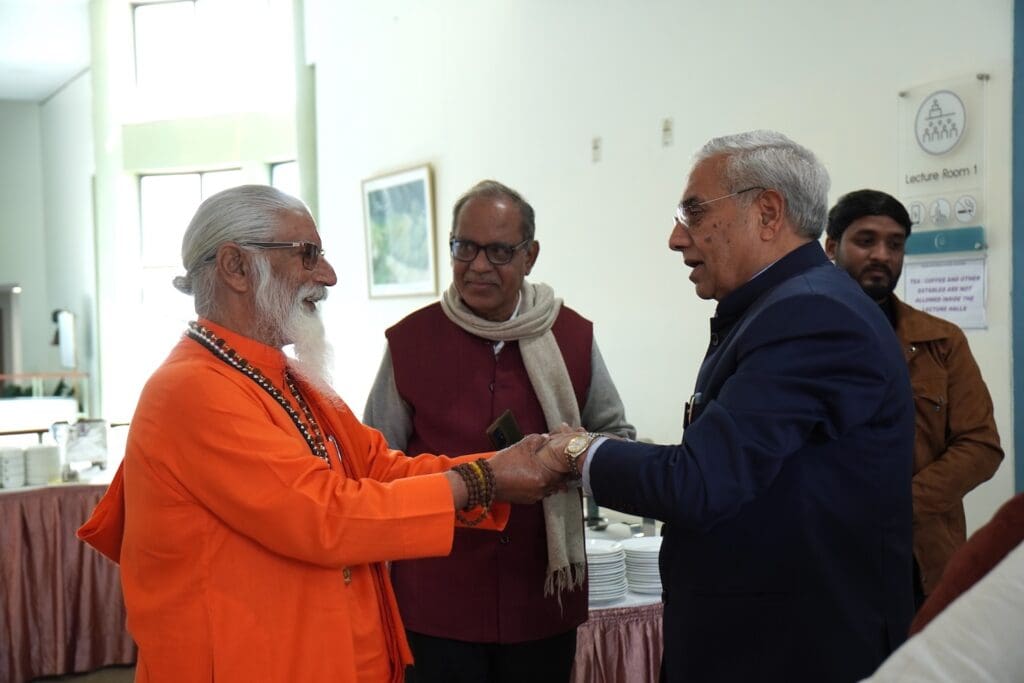
Diverse religious leaders gather for an interfaith conclave hosted by GPF India.
Likewise, GPF India organized the Interfaith Conclave in early 2025, bringing together scholars, faith leaders, and youth activists to discuss the significance of religious harmony in today’s world. Held for three days, the event focused on themes of social cohesion, shared values, and compassion-driven leadership. It not only fostered interfaith unity and collaboration but also encouraged youth-led interfaith initiatives through education, policy, and community engagement for impactful action.
Faith leadership’s power lies in its moral authority. Religious leaders can inspire followers to see beyond ethnic or religious divides, fostering empathy and unity. GPF’s international convenings, like Global Peace Leadership Conferences, have also provided platforms for these leaders to exchange best practices, creating a global network of peacemakers who can influence millions.
Interfaith peacebuilding is deeply aligned with this year’s International Day of Peace theme, “Actions for Peace: Our Ambition for the Global Goals.” The UN’s Sustainable Development Goal (SDG) 16 calls for peace, justice, and strong institutions, but lasting change requires more than laws and policies; it requires moral and cultural transformation, which faith communities are uniquely equipped to guide.
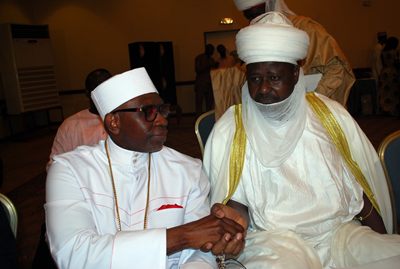
Pastor Ayo Oritsejafor, the President of the Christian Association of Nigeria (left),greets the Andoma of Doma.
As individuals, we can support interfaith peace efforts in simple ways: attend local interfaith events, promote respectful dialogue in our communities, and amplify stories of faith-based reconciliation on social media. Collective action at the grassroots level creates ripple effects that can shift global narratives away from division and toward shared humanity.
Peace begins when we see others not as “the other” but as one family. By engaging religious leaders and communities, we can move closer to a world where moral vision inspires policy and action, and where faith becomes a bridge, not a barrier.
Donate to Global Peace and support our multifaith initiatives to bridge communities and foster peace.
